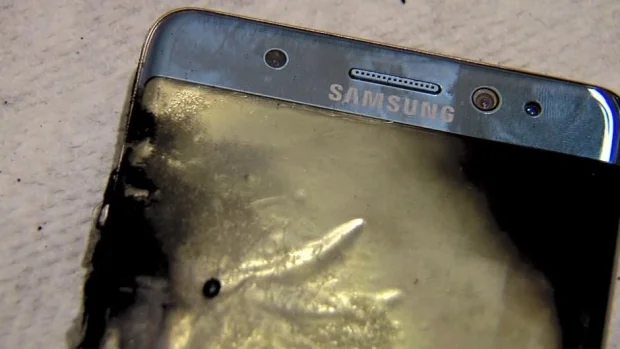Are you making all those lists and checking them twice? Gifts? Holiday cards? Party invitations? New Year’s resolutions? Well, here’s one more for you courtesy of the American civil justice system: safer products and services.
This past year we’ve been following several stories of dangerous products or unfair practices that threaten the health, safety and legal rights of all Americans. Think exploding batteries, lead-laced drinking water, forced arbitration or faulty medical devices, for example.
But thanks to the courage of citizens like you and the power of the civil justice system, we are holding accountable many of those who put profit over public well-being. And that’s a list we can all be proud of, as these stories so richly illustrate.
1. Faulty Medical Devices: Recalls Double
According the the FDA, medical device recalls doubled from 2003 to 2012, and new data shows that the numbers keep climbing. While the FDA approves medical devices before release, they do not do any testing and instead rely on the manufacturers to provide accurate and comprehensive testing data.
Two St. Jude Medical defibrillators recalled due to battery defects.
Two examples of faulty medical devices now on the market include the Essure birth control coil and the St. Jude defibrillator. The FDA has received over 10,000 complaints from women suffering painful side effects due to the Essure birth control device. Countless lawsuits against Essure’s manufacturer, Bayer, have sprung up across the country. Rep. Mike Fitzpatrick (R-PA) has since introduced a bill to pull Essure off the market. Meanwhile, more than 400,000 defibrillation devices made by St. Jude Medical were the subject of a recent recall due to a faulty battery. To learn more about medical device recalls, click here.
2. Forced Arbitration: Sign a Contract, Lose Your Rights
There’s always a holiday gift year that’s a dud. Maybe you’ve received an ugly sweater three times too big or a candle that smells so terrible it gives you a headache. Unfortunately, many corporations are now giving you those ugly sweaters (and forcing you to wear them), hiding “forced arbitration” clauses in consumer and employment contracts.
This loophole prohibits Americans from taking companies to court and instead forces them into secretive arbitrations, which are typically stacked in favor of the company. An investigation by The New York Times has focused renewed scrutiny on the harm caused by forced arbitrations in claims of medical malpractice, sexual harassment, hate crimes, discrimination, theft, fraud, elder abuse and wrongful death. You can join others in petitioning Congress to ban forced arbitration right here.
3. Flint, Michigan: Lead in Water Sickens Thousands
Lead found in the Flint water supply has poisoned thousands, including 27,000 children.
Residents of Flint, Michigan, were exposed to dangerous levels of lead in their drinking water ever since a decision was made to switch the source of the city water supply from Lake Huron to the Flint River.
Dr. Mona Hanna-Attisha, a young pediatrician known affectionately in Flint as Dr. Mona, discovered the problem when she noted an increase in the symptoms of lead poisoning in her young patients. Knowing that it was her moral and ethical duty to share her discovery with the public as soon as possible, Dr. Mona held a press conference. Michigan officials and lawmakers denounced her findings at first, only to relent when Dr. Mona wouldn’t back down. Dr. Mona continues to lead the recovery efforts.
4. Concussions and Brain Disease: NFL Settles Lawsuit
If you’re a movie fan, you probably saw the film Concussion, starring Will Smith. This movie is based on the true story of Dr. Bennet Omalu and his discovery of chronic traumatic encephalopathy in NFL players. CTE is a disease of the brain tissue and is caused by repetitive brain trauma. CTE is associated with dementia, aggression, memory loss and depression.
Subsequent research has prompted athletic organizations to make concussion prevention and recovery a priority. This includes many “When in Doubt, Sit Them Out” laws, which mandate that any youth athlete suspected of suffering a concussion be cleared by a medical professional before returning to practice or competition. Earlier this year an appeals court upheld a settlement by the NFL with former players, setting aside almost $1 billion for medical care due to repeated head trauma. Since this lawsuit, head injuries have decreased for NFL athletes.
5. Asbestos: Still a Widespread Hazard
Asbestos may seem like a thing of the past, but any building built in the United States before 1981 is presumed to contain asbestos. And in fact, asbestos-related diseases still kill about 15,000 Americans a year. Even though asbestos is known to be extremely dangerous, the substance has not been banned in the United States. President Obama recently signed the Frank R. Lautenberg Chemical Safety for the 21st Century Act, a bipartisan bill that strengthens ways to regulate and restrict chemical substances. Because of this bill, the EPA can officially work to ban asbestos in the U.S.
6. Exploding Devices: Faulty Lithium-Ion Batteries
Over 1 million Samsung Galaxy Note 7 phones have been recalled due to defective and explosive batteries.
From e-cigarettes to hoverboards to smartphones, reports continue of everyday devices posing an unsafe explosion hazard. The culprit is lithium-ion batteries, which include unstable and flammable liquids. When improperly made devices include these batteries, the liquid can overheat and burst through the battery, igniting the device itself. These explosions have caused burns as well as property damage from subsequent fires. The Consumer Product Safety Commission (CPSC) recently issued a recall of all 1 million Samsung Galaxy Note 7 phones, including replacement models thought to fix the problem.
7. Prescription Drug Addiction: A National Epidemic
Prescription opiate deaths have quadrupled since 1999, killing an estimated 165,000 Americans. During the same time period, profits recorded by the drug companies that manufacture prescription painkillers have also skyrocketed. Meanwhile, a coalition of opioid manufacturers and their lobbyists have fought legislative measures introduced to stem the tide of overdose deaths.
8. Dangerous Toys: Still on Store Shelves
Nearly 260,000 kids visit emergency rooms each year for toy-related injuries, according to the CPSC. And sadly, 11 children under the age of 15 died while playing with toys in 2015. [Download report] The most common injuries include poisoning, choking, ingesting magnets or falling from riding toys. While regulators, safety advocates and the parents of injured children have succeeded in ridding store shelves of many unsafe toys, too many still get through. Learn more.
This article appeared in our December 2016 "You Should Know" e-newsletter.








